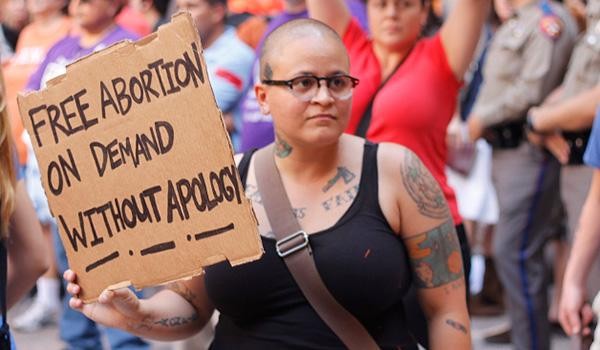The California Senate passed a bill Monday that would force all public colleges and universities to provide dangerous abortion drugs to their students free of charge.
Despite growing objections from pro-lifers as well as the colleges and universities themselves, the bill passed in a 28-10 vote, CBS News reports.
“We’re going to expand access because that’s what we do in California: we lead,” state Sen. Connie Leyva, the primary sponsor, told CBS on Tuesday.
California Senate Bill 24 would require all public colleges and universities in California to provide abortion drugs to students on campus. It would require that the drugs be offered for free to students up to 10 weeks of pregnancy by the deadline of Jan. 1, 2023.
The legislation now moves to the state Assembly, which is expected to pass it. Democratic Gov. Gavin Newsom also previously expressed support for the legislation.
Concerns about the bill are growing, however. Both the University of California and the California State University systems said they are not prepared to handle the immense costs of providing abortions on campus, according to CBS 13 Sacramento. They pointed to the costs of ultrasound machines, staff training, increased liabilities and more.
None of the campuses currently provide abortions. Former Gov. Jerry Brown vetoed a similar bill in 2018, saying the measure was “not necessary” because abortions already are easily accessible to college students in California.
In his veto message, Brown, a pro-abortion Democrat, pointed to a study from the supporters of the bill showing that the average distance to an abortion facility from campus was between 5 and 7 miles.
Pro-life advocates also have expressed serious concerns about the safety of women, as well as the promotion of unborn babies’ abortion deaths on campuses across the state.
LifeNews depends on the support of readers like you to combat the pro-abortion media. Please donate now.
Family Research Council recently published a study debunking arguments in favor of the bill.
“This mandate shows a reckless disregard for the safety and health of young women and moreover creates considerable liability for the universities and all those involved,” the pro-life organization wrote.
Those concerns include:
- College dorm rooms are unsafe environments to have an abortion.
- University student health centers are not equipped to handle adverse outcomes of on-campus abortions that may occur.
- The bill’s funding mechanism is purposefully vague.
- No conscience exemptions are offered for college health center staff who may object to dispensing the abortion pill.
“Chemical abortions are traumatic multi-day processes that come with a risk of serious adverse effect,” FRC Director of Life, Culture, and Women’s Advocacy Patrina Mosley said. “No dormitory community is prepared to handle the liabilities such a mandate creates. The physical and psychological health of women is at considerable risk, and no state should consider it for model legislation.”
In April, pro-life advocates urged lawmakers to consider the potential risks and liabilities of forcing colleges to provide abortion drugs.
Marylee Shrider, political advocacy chair for Californians for Life, cited FDA statistics showing the serious risks associated with abortion drugs. The FDA has documented at least 4,000 cases of serious complications, including more than 1,000 women who required hospitalization; in addition, at least 22 women died after using the drug.
“Medication abortions on college campuses are not only unnecessary, they are contraindicated,” Shrider said.
The legislation does not support choices for pregnant and parenting students, either. It supports abortions. Nowhere in the legislation are provisions for students who chose to parent their child. There is no requirement that campuses offer prenatal care to pregnant students or child care to parenting students.
Initially, California public colleges and universities opposed Leyva’s bill because of safety concerns and liabilities. They pointed out that college health centers are not equipped to provide abortions. Additionally, most college health centers are not open in the evenings or on weekends, so they would not be able to treat complications.
California is one of the most radical states in regards to abortion access. Later term, elective abortions are legal, and girls as young as age 12 can obtain abortions without parental knowledge or consent.
ACTION: Contact California state lawmakers in opposition to the bill.








